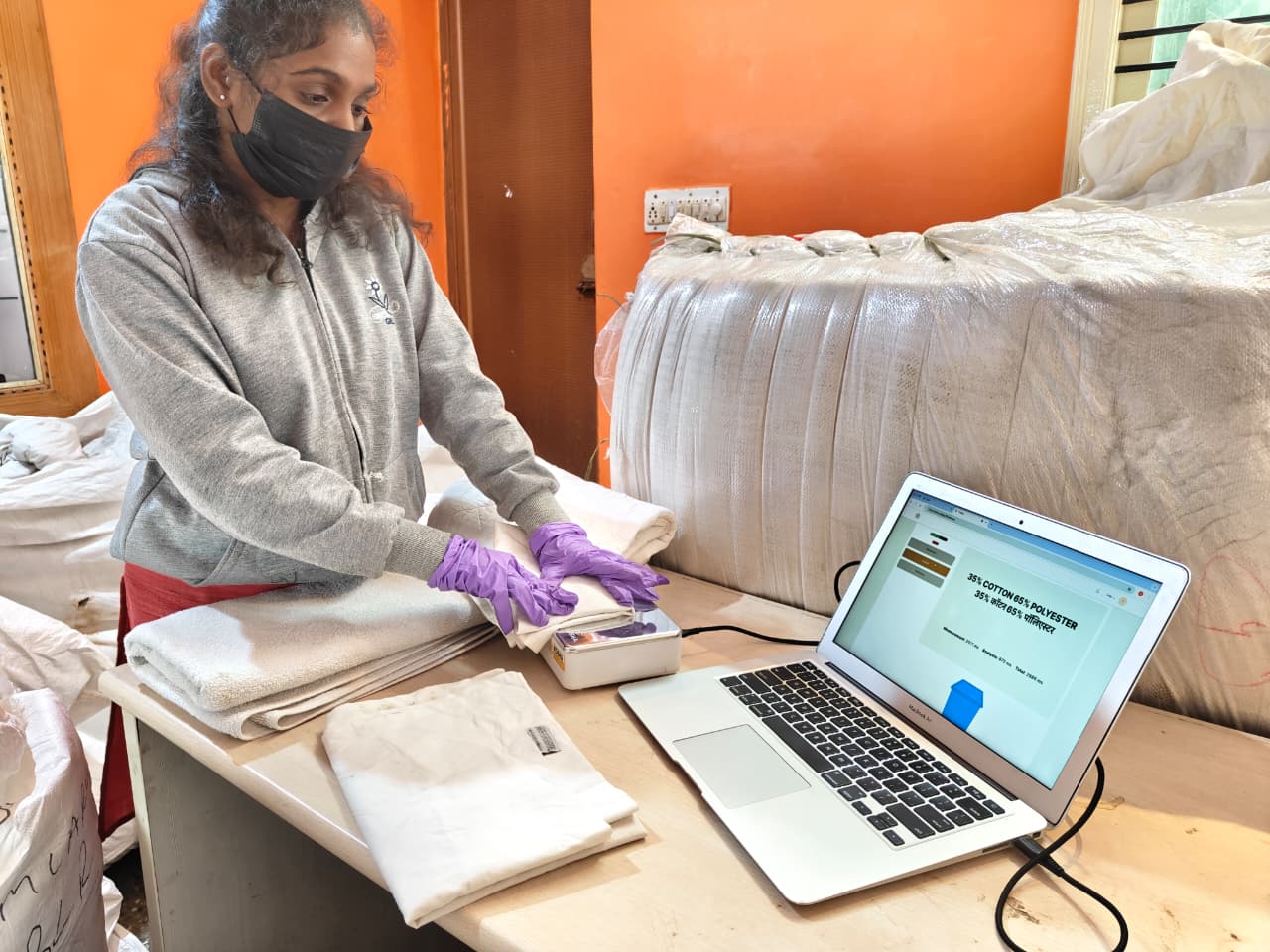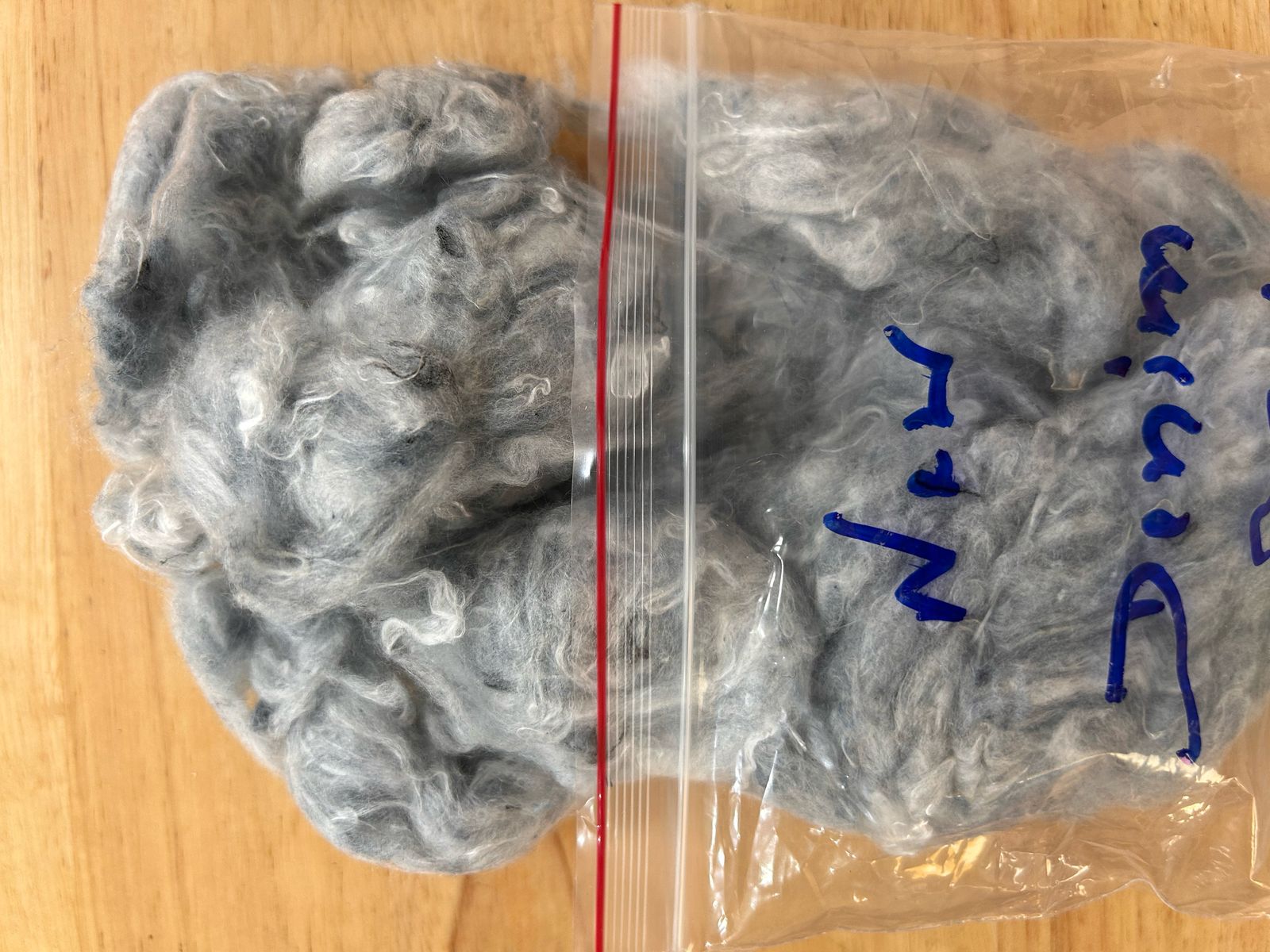Every year, India generates over 1.3 million tonnes of urban household textile waste. In cities like Bengaluru, more than 50-70% of this waste is landfilled or burnt. This is due to broken collection systems and textile being mixed with other waste, with only a small fraction, about ~14% finding its way back into high-value circular chains.
Backed by Saamuhika Shakti, Enviu is working to eliminate textile waste at the source. Each venture plugs into a different source of the textile waste stream — from household to hotel rooms and is built to empower and encourage inclusion of waste pickers through employment and new livelihood opportunities. Enviu is testing and building new, practical pathways proving that textile waste can be a resource with value, dignity, and a future.
Together, these ventures are diverting textile waste from landfills and showing that it can be the beginning of something new. This photo essay showcases four ventures rethinking what we call “textile waste.”
Photos by: Enviu
PHOTO STORY
.jpeg)
Once stigmatized, thrifting is now the choice of India’s youth fueling a $3 billion market set to triple by 2032.
Qilin started by testing its platform with Gen Z, a generation that loves vintage fashion, values sustainability, and wants an easy way to share their wardrobe and style. A Qilin promotional poster at one of Bengaluru’s favoured hangouts of the Genz crowd.
.png)
Selling on Qilin is simple. The image shows how to register and sell garments: Register → upload a photo of the garment → add relevant details → and your pre-loved piece is ready to find a new home.
.png)
.jpg)

.png)
.png)

%20(1).jpg)
.jpg)
%20(1).jpg)
.png)
These innovative ventures by Enviu, demonstrate a powerful approach to tackling India's significant textile waste problem at scale. By creating practical and valuable pathways for discarded textiles, from online re-sale platforms to transforming hard-to-recycle materials and developing circular denim models, they are not only diverting waste from landfills but also fostering a more sustainable and dignified future for textile resources.
🎥 For more insights, watch: Conversations from the Field: Giving Textile Waste New Life with Scalable & Inclusive Ventures
Every year, India generates over 1.3 million tonnes of urban household textile waste. In cities like Bengaluru, more than 50-70% of this waste is landfilled or burnt. This is due to broken collection systems and textile being mixed with other waste, with only a small fraction, about ~14% finding its way back into high-value circular chains.
Backed by Saamuhika Shakti, Enviu is working to eliminate textile waste at the source. Each venture plugs into a different source of the textile waste stream — from household to hotel rooms and is built to empower and encourage inclusion of waste pickers through employment and new livelihood opportunities. Enviu is testing and building new, practical pathways proving that textile waste can be a resource with value, dignity, and a future.
Together, these ventures are diverting textile waste from landfills and showing that it can be the beginning of something new. This photo essay showcases four ventures rethinking what we call “textile waste.”
Photos by: Enviu
PHOTO STORY
.jpeg)
Once stigmatized, thrifting is now the choice of India’s youth fueling a $3 billion market set to triple by 2032.
Qilin started by testing its platform with Gen Z, a generation that loves vintage fashion, values sustainability, and wants an easy way to share their wardrobe and style. A Qilin promotional poster at one of Bengaluru’s favoured hangouts of the Genz crowd.
.png)
Selling on Qilin is simple. The image shows how to register and sell garments: Register → upload a photo of the garment → add relevant details → and your pre-loved piece is ready to find a new home.
.png)
.jpg)

.png)
.png)

%20(1).jpg)
.jpg)
%20(1).jpg)
.png)
These innovative ventures by Enviu, demonstrate a powerful approach to tackling India's significant textile waste problem at scale. By creating practical and valuable pathways for discarded textiles, from online re-sale platforms to transforming hard-to-recycle materials and developing circular denim models, they are not only diverting waste from landfills but also fostering a more sustainable and dignified future for textile resources.
🎥 For more insights, watch: Conversations from the Field: Giving Textile Waste New Life with Scalable & Inclusive Ventures